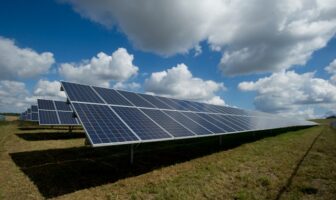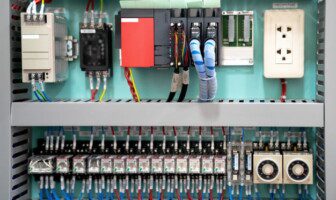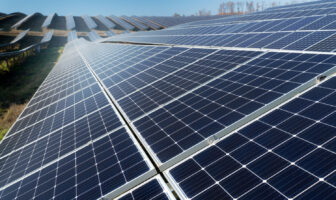
As technology advances, solar energy is coming to the fore as a top choice for modern man’s power needs.
In December 2018, Stanford University used advanced mapping technology to pinpoint solar installations around the US. They identified 1.47 million solar panel installations across 48 states.
If you’d like to try solar power without going the whole hog, a solar panel generator is a good choice for starters.
What Is a Solar Panel Generator?

Solar generators are a scaled-down version of a full-on home solar installation.
They consist of 4 components. These are:
- solar panels
- a battery charger
- a battery
- an inverter
They work by harvesting the sun’s energy from the solar panels to charge the battery. When you need power, it’s drawn out of the battery and passes through an inverter.
The inverter changes the photons from the sun into alternating current electricity, which is what most appliances use.
More solar panels and a bigger battery mean that the generator can store more power each time.
When it comes to solar generators, portability is key. This means smaller batteries. You won’t be able to power your whole house all the time with one of these devices.
Depending on its capacity, a generator battery takes from 3 to 8 hours to reach a full charge on a sunny day. You’ll get about 4 hours of use out of it from one charge.
Solar energy generators can power anything that works off your house’s electricity supply, but only as long as the charge lasts.
The less you plug into your generator the longer the battery charge will last.
The quality of the battery is more important than its size.
According to PoweredPortableSolar.com, a top-notch lithium battery has 97% of usable power while standard batteries only give you 90%.
When you’re on a camping trip, a solar generator can easily provide power for your basic needs, but it has its uses at home too.
1. Silent Nights:
Solar generators are an eco-friendly, lightweight, and convenient solution for those who love the outdoor lifestyle.
Many campgrounds don’t allow conventional generators. After all, who wants to listen to the sound of a petrol engine churning away during their peaceful getaway.
On the other hand, solar generators have no moving parts and are silent operators.
When you own a portable solar generator you save on the extra expense of hiring a campsite with electricity.
You can also go really wild exploring out-of-the-way places right off the grid.
It’s no surprise that campers soon latched on to the benefits of using their solar generator for home use too.
2. Avoid the Blackout Blues:
Since solar-powered generators are silent, lightweight, and easy to move around, there’s no reason why they can’t become a part of your daily life too.
Hitching up a solar generator is an easy way to cut your electricity bill. It’s also a good way for your camping generator to earn its keep.
In doing that, you also help cut carbon emissions to safeguard the Earth from climate change by enrolling in a green energy plan, check out the Green Mountain Energy rates to get the plan that fits you best.
Power outages are a breeze when you have a handy source of power for emergencies.
As long as you keep your generator charged, there’s no need to scramble for candles or head for the 24-hour fuel station during a late-night blackout.
Even a small solar-powered generator can run several 33Ah 12V appliances simultaneously for around 4 hours.
Importantly, a solar generator can also keep CPAP and other vital medical devices running when the power’s out.
3. Safe and Reliable:
Solar power does not generate any fumes, making it ideal for indoor use.
There are no worries about burning volatile fuels inside your home. You also don’t need to run a mess of cables from outside your house to use it.
As long as the sun is shining, the solar panels that run your generator will keep replenishing the batteries. When darkness falls, the generator has enough energy stored to keep going for hours.
In this way, you can save on a portion of your electricity bill every day.
The average American household uses around 800 KwH of electricity monthly. It’s easy to figure out that shaving 4 hours off of that every day adds up to considerable savings.
If needed, you can also charge your solar generator from an electrical outlet on a cloudy day.
4. Cheap to Run:
Watt for watt, solar generators are more expensive to buy than their fuel-guzzling counterparts.
Yet, that’s only if you don’t take the operational costs of each into account.
That’s where the cost advantage of conventional generators ends. The price of gas rarely decreases but the sun’s energy is free forever.
The sun’s energy is free forever.
Let’s recap on some of the cost-saving benefits we’ve already discovered about solar generators:
- a cheaper option for campers
- savings on candles and gas during a power outage
- reduced electricity bills
- minor maintenance costs
- zero cost to run
In addition, solar-powered generators need little to no maintenance throughout their lifespan.
The lithium battery should last between 5 and 8 years and is easily replaced. The rest of the components could last as long as 25 years.
5. It’s the Right Thing to Do:
Though you should be, you don’t have to be environmentally conscious to see the many benefits of these kinds of generators.
That said, solar power, in general, is one of the most eco-friendly options around. It produces no pollution and does not rely on fossil fuels to provide energy.
If everybody converted to solar power, we could slowly start to reverse global warming.
It makes sense to choose solar whenever you’re at a crossroads about electricity supply.
How to Take Care of Your Solar Panels

Taking care of your solar panels is easy, but it’s important to do a bit of maintenance if you want them to operate at their highest efficiency.
After all, they are the ‘heart’ and the main component of your solar generator.
Here’s how you can keep them in tip-top condition for many years to come!
Regular Cleaning!
The first thing that you’ll want to do is clean your panels. They’re outside 24/7, and as time goes on, dust/dirt/debris builds up on the surface, causing them to be less efficient at absorbing sunlight.
The good news is that it’s an incredibly simple process and doesn’t require anything special.
Just some water, mild soap, and a soft cloth or sponge!
Give the panels a wash every few months (unless you live somewhere particularly dirty/polluted), as this will have an impact on how much energy they produce.
How Are you Placing the Solar Panel
Next, let’s discuss placement. You need to position your solar panels in a place that receives unobstructed sunlight for most of the day.
Shade from trees or buildings can block the sunlight that reaches your solar panels and reduce their output.
If anything, new grows near your solar panels and creates shade or if something new is built near them, that will cast shade, trim, remove, or move.
Whatever you must do to make sure the sun shines directly on your solar panels all day long.
Check the Wiring Regularly
You’ll also want to check the wiring and connections of your solar generator every so often. Over time, wires may loosen up, or connectors may wear out from plugging in and unplugging portable solar panels.
Visually inspect all these areas once a year just to make sure everything still looks good. Should any part ever become frayed or damaged (even if you think it still works), replace it immediately.
Think About Battery Care
Now, don’t forget about battery care. While the panels themselves might last 25 years, your generator’s battery will likely need replacing every 5 to 8 years.
Make sure to follow the manufacturer’s guidelines on how to store and maintain your battery so you can get the most life out of it as possible.
For instance, don’t drain the battery completely too often because this can reduce its efficiency over time.
Do not Miss out on Maintenance!
Lastly, keep inverter care in mind. The inverter is what takes all that energy that is collected by the solar panels and turns it into usable energy for your devices /appliances.
If your inverter goes down. So does your entire solar system (no pun intended). So, monitor it and replace it as necessary.
With these simple maintenance tips, your solar generator will continue to produce clean and reliable energy for many years.
Does Solar Power Have any Drawbacks?
Nothing’s perfect, and there are instances where a solar panel generator may let you down.
Prolonged periods of gloomy weather can reduce the output of your solar panel generator.
This means you may need to rely on electricity to charge your solar panel generator at times.
On the upside, solar technology is getting more efficient every day.
Find out more about the pros and cons of solar power in this article.
Read Also:




























